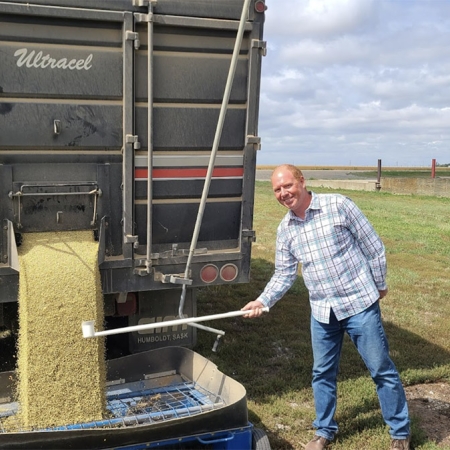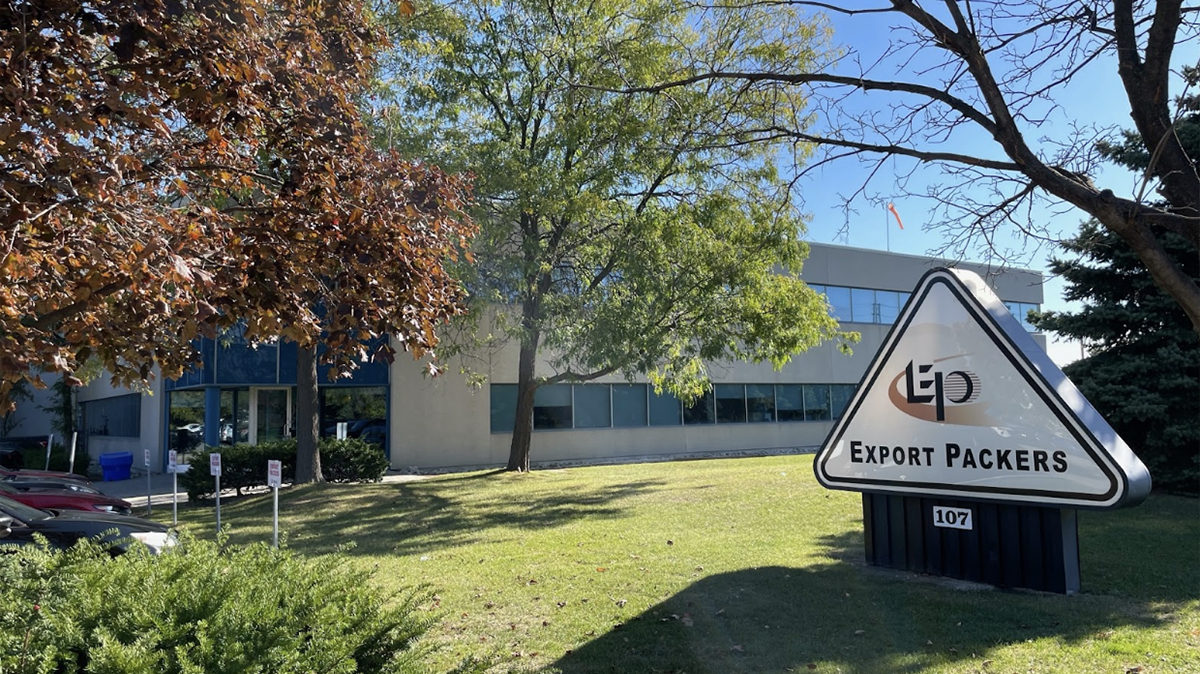October 10, 2022
Marcos Mosnaim is the field crop trading manager for Export Packers. Luke Wilkinson interviewed him about this year’s lentil crop and shifting trade patterns between Canada and Mexico.


Export Packers is a company that’s been in the market for over 85 years. It started out trading meat, and now it’s one of the largest privately owned trading companies in Canada, trading over $1 billion a year.
Our pulse division was started 30 years ago - I came in around a year ago and started running the division after my predecessor Craig Murray retired but I've been working in this industry for the last 18 years.
We work with all kinds of pulses and are the type of company that’s always looking for new opportunities. We're very strong financially, which allows us to take advantage of situations when we see them.
Our main trade is in lentils and our markets are Latin America, Europe, and North Africa. The company has been very focused over the years on keeping good quality as well as protecting our customers and treating them well.
Our strength is in the development of our partnerships; we look to create bonds with our customers and help them grow their business.

Our focus has been on the green lentil market. Recently we've started doing something with India, which is a red lentil market, but these are just baby steps so far.
Yes, last year was very bad. There was drought, yes, but last year we also had huge amounts of excess rain in Vancouver as well as the drought in Saskatchewan.
This year the weather has been good, but it’s still hard to generalize across Canada. For example, Ontario began looking like it was going to have quite a wet year, then it became dry again. Saskatchewan got perfect weather, then some other parts got very dry weather.
I think if we take the lentil crop as a whole, obviously there was a smaller area seeded, but we are probably also looking at quite an average yield overall.
People have been very optimistic about the crop but I think it is average at best.
People also forget that we are coming from a year where there was virtually no product left. Whatever product was left in the silos is a product that the farmers may hold forever. Farmers didn't sell at record prices last year, so they're not going to go around and sell today at low prices just because.
I also see a lot of farmers holding product this year so, even though the crop is better than last year, the amount available for sale may not be that big either and we are still facing issues with transportation, like everyone else. It’s going to be a fun year.
Well, you know, in the 18 years that I've been doing this we've never had two years the same. It's a business where you can never say, ‘Oh, I’ve done this before’.
So it's always fun. Whenever one door closes, you have another that opens. You always have to look for alternatives - for different ways of doing business in different opportunities.
Crops are always coming up somewhere in the world and people are always seeding somewhere in the world. There are always opportunities and there are always problems. For example, two weeks ago I drove the whole prairies and saw some amazing crops, but in other areas the crops looked beautiful but locusts had eaten almost everything - they looked great but there were no flowers!
There are always different issues like that and this year will not be any different. We will face a lot of ups and downs.
Firstly, price has been affected because at the beginning you quote one price and then in the end your ocean freight costs are different from what you thought they would be.
Secondly, it affects you because you cannot ship. If I have a customer who takes two containers and for two weeks you're not able to move the cargo to him, he isn't going to take six containers of lentils when your cargo finally arrives.
If their customers don’t eat lentils one day, and don't eat lentils the day after, that doesn't mean that on the third day they’re going to eat three times as much. So whenever you have logistics issues, you lose the demand that wasn't fulfilled.
Right now, things in the market look slow because products that should have been shipped in July are arriving in September. The buyer isn't going to buy for September, he's going to wait to sell what he has first.
I think these events are really good because you get to see everybody from everywhere. Coming from Canada to Cancun is also a very attractive place to escape from the winter!
I would love to see more of these conventions, especially when the GPC does joint conventions, such as the previous event they did with the Canadian Specialty Crop Convention, which was a success.
Of course. Canada exports lots of things to Mexico: lentils, canary seed, beans, canola, and flax seed, among others. This year, pinto beans are very important and Mexico is a major player on the buying side. Last year they had a fantastic crop so instead of buying, they were selling some pintos beans to the US, whose own crop last year was quite poor.
It's a question of price; if beans are at $1500 a tonne, then the pintos go north to America and the Mexicans switch to eating more lentils and peas. If pinto beans are at $800 a tonne, the Mexicans may eat them themselves.
We’re always looking to grow. We've been adding new traders to the team, and we’re always looking to be our customers’ best friend by giving them what they need. If that means looking at facilities, we're going to look at them. If it means looking at certification, we're going to look at that too. At the end of the day, it's all about being someone who is reliable - someone your customers can count on.
Disclaimer: The opinions or views expressed in this publication are those of the authors or quoted persons. They do not purport to reflect the opinions or views of the Global Pulse Confederation or its members.